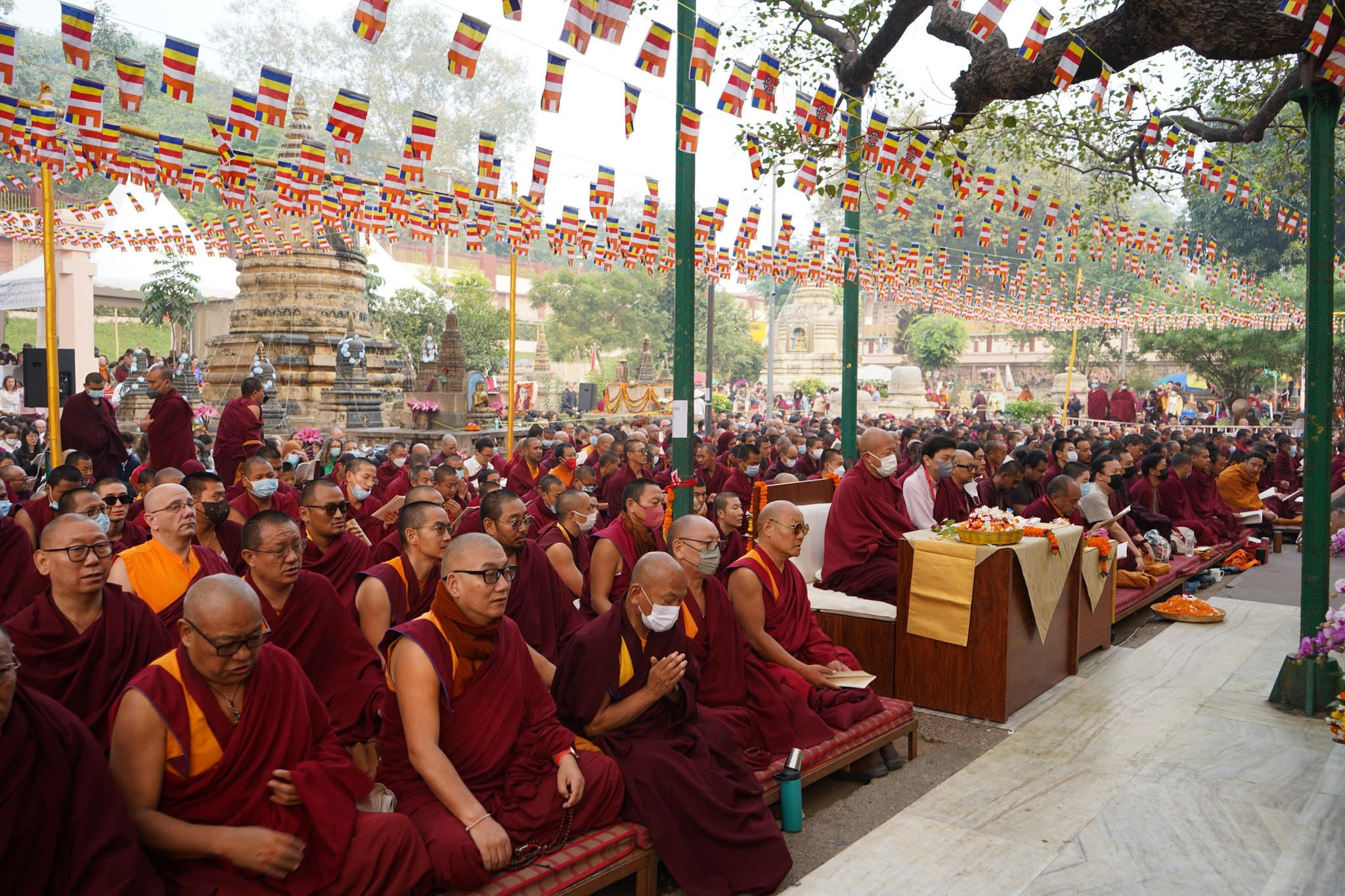
Dzongsar Khyentse Chökyi Lodrö Institute

In 1982, Dzongsar Khyentse Rinpoche established Dzongsar Institute, a small monastery in Sikkim, India, with about 40 monks. Several years later the institute was relocated to Bir, Himachal Pradesh, where it became the Dzongsar Khyentse Chökyi Lodrö College of Dialectics (DKCLI). Starting off with approximately 40 monks, by the year 2000 the shedra (monastic college) housed about 450, requiring more student housing and teaching halls to be built. Rather than capping the number of monks, a new campus in the nearby town of Chauntra was constructed to manage increasing demand. Inaugurated in 2004, DKCLI now accommodates hundreds of monks from more than 300 monasteries representing all traditions of Tibetan Buddhism from across the Himalayan region.
Now one of the most renowned monastic institutions in India, DKCLI has a rigorous and well-respected monastic curriculum. Its intensive 11-year study program begins with 7 years of traditional Buddhist philosophy. Each year the students are immersed in the study of two major Buddhist texts, and they take classes in logic, grammar, monastic discipline, and poetry. They also have the opportunity to study or attend lectures in extracurricular topics such as computer technology, management and leadership, global economy, Western history, and philosophy.
DKCLI serves monks and lay practitioners, as well as the local community. In 2006, a free health clinic was established to provide primary and preventive healthcare for the monks. The clinic also serves the surrounding community with an annual free medical camp. The institute offers a program in Higher Tibetan Studies that includes lay and female students for the first time in history; the first Bachelor of Arts degrees were awarded in 2021.




